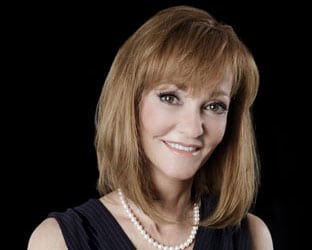Beasley Broadcast Group this morning (5/2) ushered in a busy week of Q1 earnings releases from broadcast media companies, and on its face, Beasley had a boffo first three months of 2017. That’s thanks to the inclusion of the former Greater Media stations. Minus those properties, Beasley legacy station revenue declined by $2 million. Why? Politics — and a “shock jock” no longer on one of the company’s stations — are to blame.
On a consolidated basis, net revenue came in at $53.7 million in Q1. In Q1 2016, prior to Beasley’s merger with Greater Media, net revenue was $27.5 million.
Using the non-GAAP measure of “Station Operating Income” (SOI), popular with many radio-industry companies, dollars rose to $9.8 million, from $7.5 million. At the same time, Q1 operating income was $11.5 million, compared to $4.1 million in the first three months of 2016.
Net income came in at $7.5 million (27 cents per diluted share), from $1.8 million (8 cents).
The results do not include three former Greater Media stations in Charlotte and do not include WFNZ-AM in Charlotte, which were sold Jan. 6, 2017.
In prepared comments made ahead of the company’s 10am Eastern conference call with Wall Street financial analysts, CEO Caroline Beasley explained that Beasley’s Q1 revenue, SOI and net income growth reflect the contributions from the Greater Media stations. The gains were partially offset by the absence of political revenue and softer national revenue trends.
On a reported basis, the 95.7% increase in consolidated Q1 net revenue drove SOI growth of 31.1%. Pro forma revenue was down 5.7%, or $3.3 million, of which approximately $1 million was attributable to the lack of political revenue, with the remainder attributable to transitional matters related to the Greater Media stations as well as lower national revenues, Ms. Beasley said. This was partially offset by a 5.7% reduction in pro-forma Q1 operating expenses.
But, on a stand-alone basis, Beasley attributes 35% of the $2 million year-over-year revenue decline in Q1 to not only the absence of political revenue. The remaining 65% is “partially attributable” to the change in format of the former WBRN-FM 98.7 to Adult Contemporary, as WPBB “B98.7.”
This station is the former home of the syndicated Bubba The Love Sponge morning program, which was dropped Dec. 12, 2016 ahead of a format change from “No Rules Rock.”
Ms. Beasley also alluded to “ratings-related issues” in the market during her comments on the Q1 call — a reference to the allegedly abnormal appearance of the WYUU-FM “Maxima 92.5” in Tampa audio stream in Nielsen Audio ratings.
Meanwhile, the Greater Media properties, when viewed alone, suffered a Q1 revenue decline of approximately 4%. Why? This was attributable to changes in political spending year-over-year, dips in national revenue, and “certain specific integration-related issues, particularly in Philadelphia.”
Beasley did not elaborate on these merger-related issues, other than noting that Q1 was still a transitional period for the company and that there was strong turnover in the Philadelphia cluster’s sales department following the change in ownership from Greater Media. Beasley’s stations in the Cradle of Liberty include Rock WMMR-FM 93.3, Classic Rock WMGK-FM 102.9, Sports Talk WPEN-FM 97.5, Adult Hits WBEN-FM 95.7, Sports WTEL-AM 610, and Talk WWDB-AM 860.
“In the first quarter, we continued to execute on our integration strategy focused on strong local programming to support our goals of ratings and market leadership at the newly acquired stations, while implementing our operating disciplines and SOI margin expansion,” Caroline Beasley said. “Reflecting the early success of our cost-reduction initiatives on a stand-alone basis, operating expenses for the Greater Media stations decreased by 9%, resulting in a 42.4% year-over-year increase in first quarter SOI. We believe we remain on track to complete the integration and realize the significant financial and operating synergies expected from this transaction within 12 to 18 months from the acquisition date.”
SOFT SEAS AHEAD FOR BEASLEY
Beasley’s Q1 conference call did not take live questions from financial analysts but did take a handful via e-mail prior to the call.
Asked about pacings, Beasley CFO Marie Tedesco noted that April was “a soft month,” and was down 8% year-over-year.
Meanwhile, Beasley sees pacing down in the low-single-digits for May and June 2017.
The final question: Why was there a $7.5 million “ding” in the quarter?
“Working capital still needs to be settled and closed in Q2, and this will be settled in Beasley shares,” Caroline Beasley said.
The second item is a tower sale scheduled to take place in the second quarter, she added.





